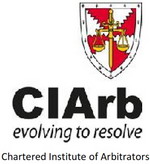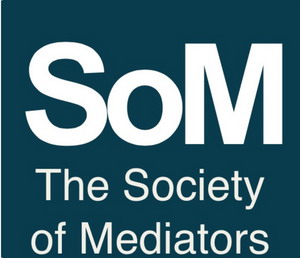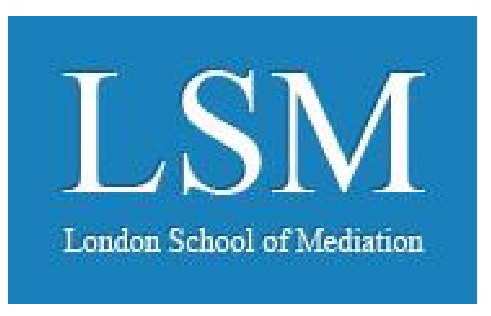Date: 6th June 2014
The High Court has highlighted the dangers of refusing to mediate in disputes that are suitable for Alternative Dispute Resolution (ADR).
In Phillip Garritt-Critchley & Others v Andrew Ronnan and Solarpower PV Limited [2014] EWHC 1774 (Ch), His Honour Judge Waksman QC sitting in the Chancery Division, Manchester District Registry awarded indemnity costs to the Claimants (our clients) as a result of the Defendants’ consistent refusal to mediate; an approach which the court deemed unreasonable. The decision emphasises the caution that should be adopted by parties when responding to requests to mediate and the risks of refusal.
Background
Pannone acted on behalf of 4 Claimants in respect of a dispute arising from the Defendants’ failure to allocate shares in a company pursuant to an alleged agreement. The key issue for the court to determine was whether or not there was a binding agreement.
In their letter of claim they indicated that the Claimants would be prepared to engage in ADR and that we hoped that proceedings would not prove necessary. The Defendants’ representatives responded stating that their clients were unwilling to engage in mediation at that juncture.
Proceedings were subsequently issued on 6th July 2012. In the Claimants’ allocation questionnaire they confirmed that they remained willing to negotiate and sought a one month stay of proceedings to allow the parties to explore settlement. The Defendants’ allocation questionnaire indicated that they remained unwilling to agree to a stay of proceedings, explaining that “the parties are too far apart at this stage”.
They pressed the Defendants’ solicitors to explain the refusal to engage in ADR and they indicated that both they and their clients were well aware of the penalties that may be imposed if they were found to have unreasonably refused mediation, but they and their clients were extremely confident of their position and did not consider that there was any realistic prospect that our clients would succeed. As a result, the Defendants considered their rejection reasonable.
Throughout the course of the litigation they reiterated the Claimants’ willingness to mediate on numerous occasions and on each occasion that offer was rejected on the basis that the Defendants’ were extremely confident of defeating the claim.
At a CMC on 28th May 2013 District Judge Khan gave directions to trial and recorded that the court considered that the overriding objective would be served by the parties seeking to resolve the claim by mediation and directed the parties to provide a witness statement in a sealed envelope in advance of the trial explaining any refusal to mediate.
In November 2013, approximately 2 months before trial, the Claimants put forward a part 36 offer in the sum of £10,000. The period for accepting the offer expired without it being accepted. On 14th December 2013 the Defendants put forward a counter-offer for the Claimants to discontinue their claim and pay 75% of the Defendants’ costs. Notwithstanding that, they reiterated that the Claimants remained willing to progress matters if the Defendants’ position changed and they agreed to negotiate constructively.
permission to accept the part 36 offer that had been made in November 2013. The Claimants granted permission and the Defendants accepted the offer, triggering an entitlement to the Claimants being paid their costs on the standard basis up to the date of acceptance. At a hearing on 4th February 2014 the parties addressed the court on costs.
The Decision
The Claimants sought an indemnity costs award on the basis of the Defendants’ failure to engage in mediation. HHJ Waksman QC ordered the Defendants to pay costs on the indemnity basis up to the date on which the Claimants’ part 36 offer was accepted.
HHJ Waksman QC made it clear that this action was fairly typical in that it involved the court determining whether a binding agreement had been reached and therefore lent itself to each party engaging in a risk analysis as to the likelihood of their position being favoured by the court. He ruled that it was a classic matter for mediation as a result of the wide range of possible scenarios in relation to quantum and it was not, as the Defendants contended, an ‘all or nothing’ case.
HHJ Waksman QC went on to compare the principles drawn from the leading case, Halsey v Milton Keynes General NHS Trust [2004] EWCA Civ 576 with the reasons given for refusal in the witness statement filed by the solicitor acting on behalf of the Defendants.
The judge concluded that the Defendants contention that there was no ‘middle ground’ was flawed as this was a classic example of a binary issue and that approach was misconceived. HHJ Waksman QC ruled that the case was eminently suitable for ADR as the Claimants had appreciated in the letter of claim. Further, the Defendants’ confidence that no agreement would be reached was found to be flawed and unrealistic. The judge commented that had the Defendants been so confident of their position then it followed that they ought to have made an application for summary judgment. ‘Extreme confidence’ was not a ground that could be considered reasonable as endorsed by Halsey.
Similarly, the Defendants’ contention that there had been considerable dislike and mistrust between the parties which contributed to the refusal to mediate was without foundation on the basis that such a situation was common in litigation and precisely the kind of difficulty that a mediator was trained to address.
Finally, HHJ Waksman QC considered the Defendants’ reasoning that the parties were too far apart for a settlement to be reached and concluded that parties don’t know whether they are too far apart unless they sit down and explore settlement.
The Defendants cited the recent case of PGF II SA v OMFS Company 1 Ltd [2013] EWCA Civ 1288 in support of their position as the offers to mediate were not ignored and were responded to promptly. This did not find favour with the court. HHJ Waksman QC noted that whilst they did respond to the requests to mediate, their reasons were misconceived and on that basis indemnity costs were appropriate.
Implications of the decision
This decision reinforces the message that mediation is strongly supported by the judiciary and that parties and practitioners need to carefully consider the potential ramifications of a refusal to engage in ADR. In situations where a party is refusing to mediate, it is prudent for the party offering ADR to highlight that refusal in correspondence and to make it clear that indemnity costs will be sought should the matter reach trial.





